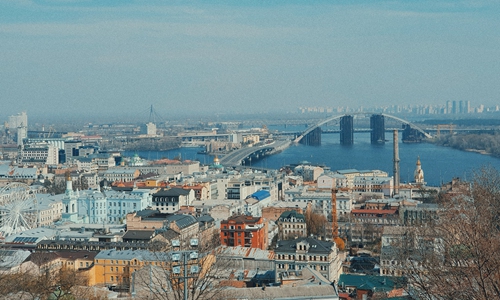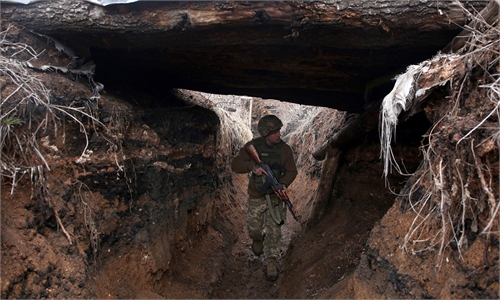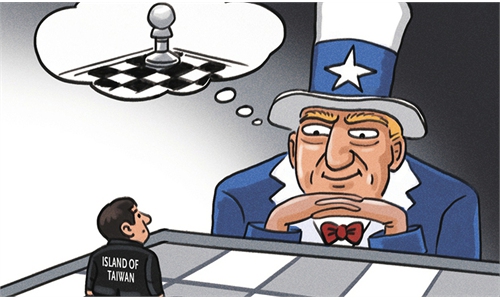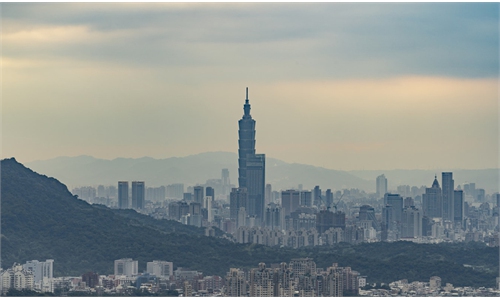Semiconductors, food supplies at risk amid elusive situation in Europe
Prices of food, semiconductors and other commodities may surge

A view of Kiev, Ukraine Photo: Unsplash
The escalation of Russia-Ukraine tensions stoked by the US has raised concerns about potential supply chain disruptions ranging from essential raw materials for semiconductors such as neon, to agricultural products including corn and wheat, of which Ukraine has been a major world exporter.
While the elusive situation in Europe has pushed up oil and other commodity prices and risked further disruption to global semiconductor supplies, which remain tight due to the pandemic and US-initiated trade wars, Chinese companies have started reviewing their supply chains to reduce operational risks.
Ukraine is a major supplier of semiconductor raw material gases, including neon, argon, krypton and xenon. Ukraine supplies nearly 70 percent of the world's neon gas, according to a report that TrendForce, an industry information consulting company, sent to the Global Times on Tuesday.
In the semiconductor lithography process, the process that requires neon gas is mainly DUV exposure for the production of 8 to 12-inch wafers.
Although the proportion of neon gas used in the semiconductor process is not as high as in other industries, it is still a necessary input, experts said.
In terms of foundries, global 8-12-inch wafer production capacity accounts for about 75 percent of the total, according to TrendForce.
While supplies of inert gases such as neon would be reduced in volume in the region, potentially pushing up prices of downstream products including semiconductors, the production lines will not be interrupted to an extent that affects output in the short term, since both wafer factories and gas supply factories have inventories and diversified sources of supplies, according to TrendForce.
Ma Yinchuan, head of the China Industrial Gases Industry Association, told the Global Times on Tuesday that at present, there is not much problem of inadequate neon supply.
In addition to helium, there is no serious shortage of China's inert gases, including neon now, but there will be tight supplies and prices will rise, especially if countries such as Japan and South Korea increase imports of neon from China amid the tensions in Europe, even though the production of neon gas can be improved through government mobilization if it is needed, Ma said.
In addition to neon gas, Ukrain supplies 40 percent of the world's krypton and 30 percent of xenon - both are important materials in semiconductor-related production. Experts said that if supplies are cut off, it will further exacerbate domestic shortages.
Other than raw materials for making chips, both Russia and Ukraine are major exporters of wheat, corn and oilseeds, so grain trade has been affected now.
Russia's wheat exports account for 20 percent of the world's total, making it the world's largest wheat exporter, while Ukraine's wheat exports account for 10 percent, making it the fifth-largest world exporter, according to media reports.
"Imports of Ukrainian grain continue. Up to now, no impact has been seen in shipments," a procurement manager with a major grain trader told the Global Times on Tuesday. "However, there has been a considerable rise in prices.
"As traders, we are not comfortable with this situation," the manager said on condition of anonymity.
Analysts cited by a CNN report are eyeing wheat prices to rise to $11 per bushel, the highest since 2008, from the current level of $7.93. For corn, the rise would be from $6.47 to $8 per bushel.
Ukraine is also the fourth-largest corn exporter in the world, accounting for about 16 percent of global exports. In 2021, China imported 28.35 million tons of corn, including 8.23 million tons of Ukrainian corn, accounting for about 29 percent of China's total corn imports.
"Now, some Chinese traders are more cautious when signing corn orders sourced from Ukraine," Meng Jinhui, an agriculture industry analyst, told the Global Times on Tuesday.
In recent days, the US has played up tensions between Russia and Ukraine while stoking fears of a Russian "invasion," according to media reports.
Given the circumstances, it is not a responsible behavior to hype up war, and to advocate group confrontation is to go back to the old path of the Cold War, China's Foreign Ministry spokesperson Wang Wenbin said on Tuesday, in response to media questions about Russia-Ukraine tensions.
Wang urged all parties to be rational and refrain from making moves that may escalate the tensions and sensationalize the crisis.



